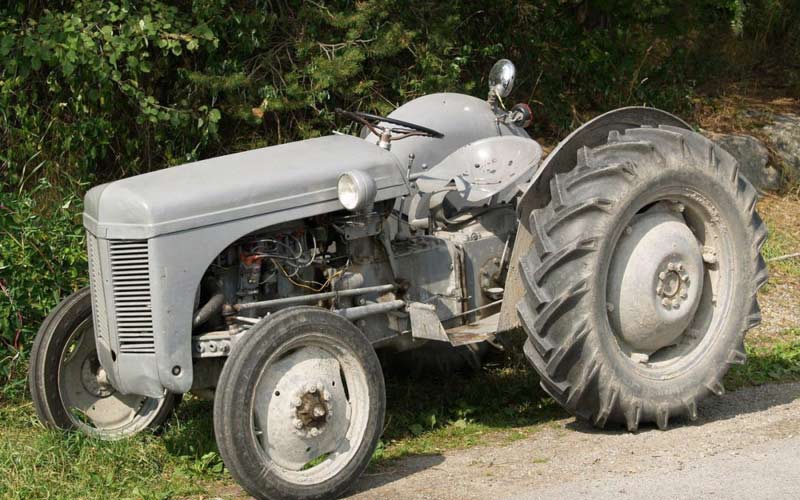Gray market tractors, or grey market if you prefer, are older tractors manufactured for sale in Japan and shipped back to the U.S. for resale.
In 2003, as part of their effort to reduce pollution, the Japanese government passed laws that required drastic changes in emissions, and even tougher laws went into effect in 2008. The U.S. passed similar laws, but with one major difference: in the U.S., you could keep your old tractor. In Japan, tractors that did not meet the new standards were outlawed.
Since old tractors were now useless in Japan, thousands were exported to be reconditioned for sale cheap in the U.S. and Canada. They’re manufactured by the same big companies you know and love, like Kubota, Mitsubishi, and Yanmar…so what’s the big deal? You’re getting the same tractor, made by the same company, at a bargain price, right?
Wrong.
Here are 6 reasons you should not consider a gray market tractor.
- Gray market tractors are not up to code.
Japanese manufacturing standards are completely different from the U.S., and critical differences include safety equipment. Gray market tractors do not typically have ROPS, seatbelts, or a PTO shield, for example. We have stringent standards here for a reason – to protect you and your workers, and to protect the environment. Japan has no such standards.
Big PTO implements are simply not as commonly used in Japan
- It’s against the law.
In 1997, Kubota successfully initiated legal action to prohibit the importation, distribution and sale of Kubota “gray market” units under 50 PTO horsepower.
- No warranty, service, or parts available.
When you buy a gray market tractor, you’re on your own. There’s no such thing as a full service gray market tractor dealer. There’s no warranty, and no reputable dealer will service your equipment or be able to find the gray market tractor parts.
- The instructions are in Japanese
The operator’s manual, decals, and stickers will all be written in Japanese, and there are differences in operation that would make it dangerous to try and operate a similar machine using an English manual. For example, according to Yanmar:
“Pulling on the throttle of a gray market tractor will cause it to accelerate whereas pulling on the throttle of a tractor designed for the U.S. market will cause it to decelerate. This difference can have potential safety consequences for an unsuspecting operator.”
- You have little legal recourse.
If you buy a gray market tractor and you’re hurt because safety measures are not in place, you can’t exactly argue in court that you did not understand because the instructions were in Japanese. The companies are not liable for illegal products.
- U.S. implements don’t work properly with Japanese equipment.
Yanmar cautions: “Gray-market tractors have multiple PTO speeds for operating implements, whereas tractors designed for the U.S. market generally have one PTO speed, namely, 540 revolutions per minute (rpm). If a gray-market tractor is used with an implement designed for the U.S. market, the implement can be operated at revolution speeds in excess of its 540 rpm design speed, potentially leading to catastrophic failure of the implement and associated injury.”
How to Spot a Gray Market Tractor
- Price: If it seems to good to be true, it probably is.
- Markings: Look at the stickers and labels. If they are in Japanese, that’s a dead giveaway. If the stickers are brand new on an older tractor, you might want to ask why. Also check the serial number plate.
- Manual: Don’t buy a tractor without a manual, and make sure the model number on the tractor matches the model number or range of model numbers in the manual.
- Tires: Rice paddy tires have higher thread lugs than U.S. tires and the tire markings will be written in Japanese.
- PTO clutch: Japanese tractors often have no over-running PTO clutch.
Given the dangers of using a tractor without safety equipment, we can’t imagine why anyone would want to buy one. You really can’t save enough money to justify putting your life in danger, and the added inconvenience of not being able to find parts or get service should convince you that buying a gray market tractor is not a good idea. If you need a quality used tractor, we’ll be glad to help you find one.









